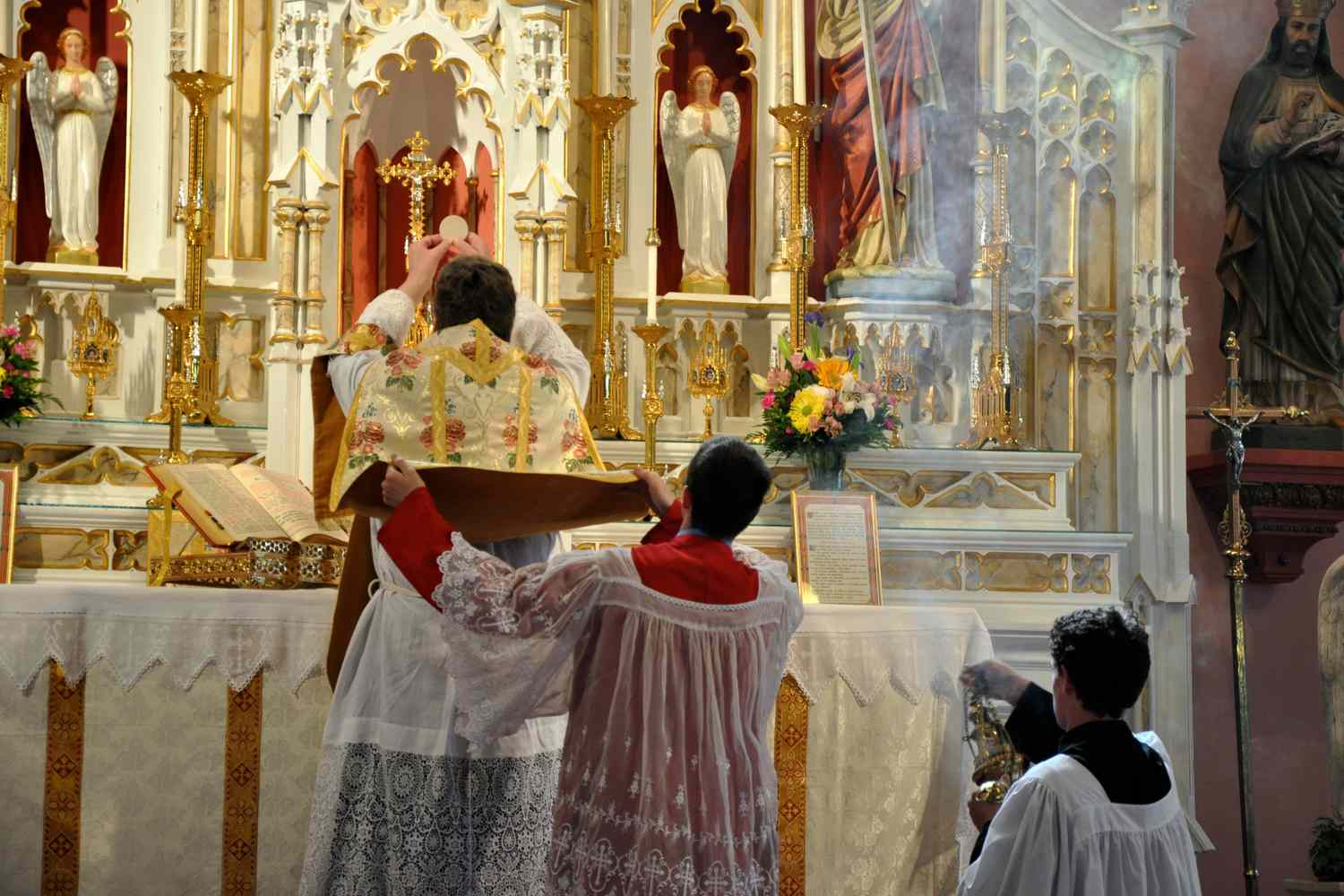Traditionalism will never be defeated
In La Croix, Christophe Dickès published an article following the Chartres pilgrimage and an editorial by Isabelle de Gaulmyn stating that "the Latin Mass will not save the Church" (echoing Benedict XVI's words, repeated in the homily at the Chartres Mass: "Nothing will ever replace a Mass for the salvation of the world"):
In the summer of 2021, in the days following the publication of Traditionis Custodes drastically reducing the use of the rite known as St Pius V, a few dozen young people addressed the Pope and the bishops in a video posted on social networks. In English, this short film of less than two minutes firstly acknowledged the fact that there could be a lack of understanding between the younger and older generations. Secondly, these young people from every continent testified to their loyalty to the Pope and the bishops by explaining that they were not questioning the validity of the new liturgy.
They did not feel cranky, old-fashioned or separatist. Finally, they explained the reason for their attachment to the Extraordinary Rite: the transcendence that inhabits this rite, its verticality and its orientation towards the East. There was no ideology among these young people, and no desire to diverge: "We are your sheep", they said, addressing the Pope.
Almost two years later, the appeal of these young people has been rejected by Rome. Worse still, as the text that came out of the Vatican offices suffered from legal blind spots, Cardinal Arthur Roche had the Pope sign another text that reduced episcopal power in this area to almost nothing. Squeezing the lemon until the seeds cracked. Much has been said about this policy, which is at odds with the spirit of decentralisation that the Pope wanted to give to his pontificate.
While the progressive wing keeps repeating that the pyramidal organisation of the Church must come to an end, subsidiarity does not seem to be accepted by the traditionalist world. The radical nature of the Roman method has caused even former Pope Benedict XVI to react. On a personal level, when he discovered this decision while reading the Vatican newspaper, he considered it to be a mistake.
For their part, many bishops were similarly surprised by this unexpected text, justified by a survey of dioceses, the results of which were never made public. After the abolition of the Ecclesia dei Commission, which was responsible for relations with the traditionalist world, the Bishops seemed to see this decision as an opportunity for them to judge the needs at their own level. Last April's reframing by Rome ultimately undermined the possibility of (re)building bridges.
However, the poll in La Croix on 26 May showed that the pips had not cracked and that the wall erected by the Roman decisions had not produced the expected effects. Worse still, it seems that the seeds are germinating to such an extent that 38% of the young people questioned said they appreciated the Latin Mass, while 40% had nothing against it, even though this rite does not correspond to their expectations. The reality on the ground as expressed in this survey reveals a complexity that no longer corresponds to the progressive/traditionalist polarity of the 1970s. In this respect, there is an astonishing parallel between this survey and the video mentioned at the beginning of this article: these young people present an astonishingly modern face, showing the world the hope that is within them.
As Jérôme Chapuis points out in his editorial, it would be a mistake to lump this small traditionalist group into hasty categories such as "reactionaries" or "Catho identitarians". What's even more interesting is that the choice of Latin Mass is not only linked to family background: in fact, an American survey commissioned by the Fraternity of St Peter in 2021 revealed that, in the 18-39 age group, only 16% said they went to Latin Mass under the influence of their parents. For more than 36% of them, the essential factor in choosing the old Rite was respect and veneration.










.jpeg)

Comments